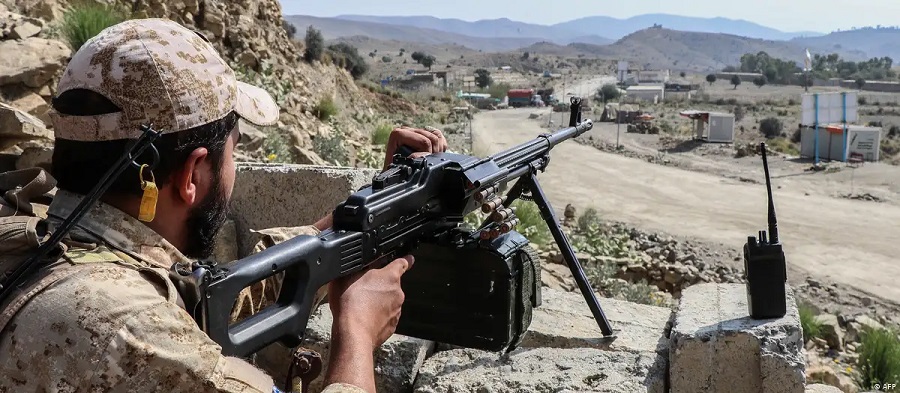Alwaght- Pakistan-Afghanistan peace talks in Istanbul amid escalating tensions between the two neighbors ended without any results. The two countries' officials said that they failed to strike a deal, blaming each other for failure of the talks.
Tensions rose in recent weeks after deadly border clashes that led to death of tens of troops and civilians. Rejuvenated tensions flared up after blasts in Kabul on October 9, when the Taliban government blamed them on the Pakistani drone attacks, vowing revenge. However, the clashes halted after a Qatari mediation on October 19.
Trading accusations
The Afghan government has pointed the finger at Pakistan for the collapse of the latest peace talks, with spokesman Zabihullah Mujahid calling Islamabad's demands "illogical" and declaring the negotiations suspended.
"The demands from Pakistan during the talks were illogical, and the discussions could not continue," Mujahid stated at a press conference in Kandahar. "The meeting concluded, and talks are on hold for the time being."
He emphasized that Afghanistan does not seek regional insecurity and that "choosing war is not our option," but added a sharp warning: "However, if a war is imposed, we have the right to defend ourselves."
The two-day talks in Istanbul, mediated by Turkey and Qatar, marked the third round of dialogue between the two neighbors. The collapse coincides with reports from Afghan officials of four civilians killed and five others wounded in fresh border clashes.
The breakdown was confirmed by the Pakistani side. Pakistan's Defense Minister Khawaja Asif told Geo News that "the talks have concluded" and there is currently "no plan for further negotiations." He stated a ceasefire would hold unless "violated by Afghanistan."
The core dispute remains Pakistan's long-standing accusation that the Afghan Taliban harbors leaders and members of Tahreek-i-Taliban Pakistan (TTP). Kabul has consistently denied these accusations, insisting it does not allow its soil to be used against other countries.
Although the TTP is separate from the Afghan Taliban, it is a close ally and has grown bolder since the Taliban's takeover of Kabul in August 2021.
In his press conference, the Afghan Taliban spokesman rejected the notion that Afghanistan is responsible for the TTP's actions, arguing the group existed long before the Taliban's current rule.
Pakistan's defense minister has said that the Afghan delegation arrived at the talks "without any plan," refused to sign a written agreement, and insisted only on verbal guarantees. "They said they would honor a verbal agreement," he said, "and there is no plan or hope for a fourth round of talks."
Border crossings remain closed
Currently, Pakistan has closed many of the border crossings with Afghanistan, though the Torkham crossing was partially reopened for the displaced Afghans to return home.
This closure of the vital trade and transit routes has disrupted lives of thousands of people. Also, it is said that hundreds of trucks carrying goods are stranded on both sides of the border and one of the busiest economic arteries of Afghanistan to South and Central Asia is cut.
Alongside the border restrictions, Pakistan is implementing a nationwide program to expel undocumented foreigners, the majority of whom are Afghan nationals. Authorities report that since 2023, over 1 million Afghans have been repatriated to their country as part of this "voluntary return" plan.
Pakistan has also witnessed a sharp rise in militant attacks, many of which have been blamed on the TTP, a group designated as a terrorist organization by the UN and a number of other countries, including Pakistan.
Risk of renewed war
According to the UN, in the clashes that erupted earlier in October, 50 civilians on the Afghan sides were killed and 447 were injured. Blasts on Kabul killed at least 5.
On the other side, the Pakistani army said that it lost 23 of its soldiers in the Taliban attacks and 29 others were injured. It, however, did not mention civilian casualties.
With the failure of the ceasefire talks in Turkey, there are concerns and a risk of renewed clashes that can increase the casualties. However, contacts now largely focus on maintaining and monitoring the truce and there are no reports of plans to resume peace talks.



























